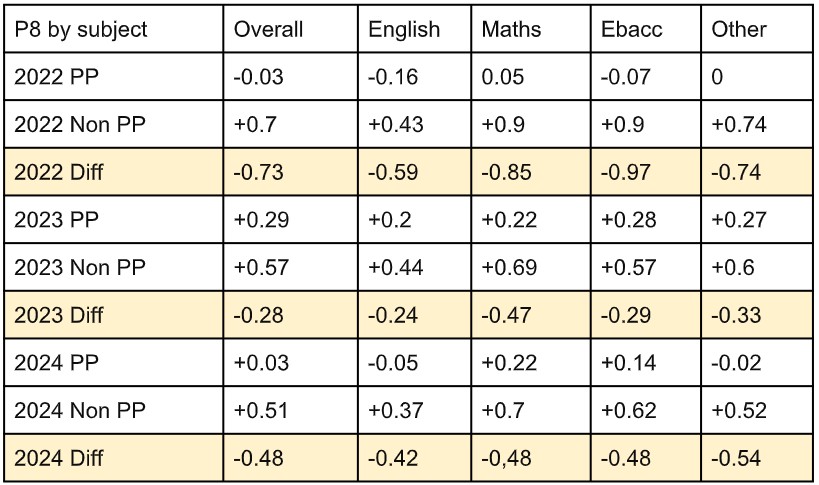Pupil premium strategy statement
This statement details our school’s use of pupil premium (and recovery premium for the) 2024 to 2025 academic year) funding to help improve the attainment of our
disadvantaged pupils.
It outlines our pupil premium strategy, how we intend to spend the funding in this academic year and the effect that last year’s spending of pupil premium had within our
school.
School overview
| Detail | Data |
| School name | Heartlands High School |
| Number of pupils in school | 1188 |
| Proportion (%) of pupil premium eligible pupils | 39% |
| Academic year/years that our current pupil premium strategy plan covers (3 year plans are recommended) | 2024/25 to 2027/28 |
| Date this statement was published | November 2024 |
| Date on which it will be reviewed | November 2025 |
| Statement authorised by | Elen Roberts, Headteacher |
| Pupil premium lead | Andy Greenwood, Assistant Headteacher |
| Governor / Trustee lead | Maria Nabatanzi |
Funding overview
| Detail | Amount |
| Pupil premium funding allocation this academic year | £477,496 |
| Recovery premium funding allocation this academic year | £0 |
| Pupil premium funding carried forward from previous years | £0 |
| Total budget for this academic year
If your school is an academy in a trust that pools this funding, state the amount available to your school this academic year |
£477.496 |
Statement of intent
| We believe that all pupils irrespective of their background or circumstance should be given the opportunities to make excellent progress and achieve high attainment across the Curriculum. We are fully committed to closing the disadvantage gap through an integrated approach to pastoral and curriculum support. The key focus of our pupil premium strategy is to ensure that pupil premium students The strategy has three main strands; Teaching and learning, Targeted academic A key focus is high quality teaching and learning. We know that this is what has the A HHS PP charter shows a commitment to supporting every pupil premium student. |
Challenges
This details the key challenges to achievement that we have identified among our disadvantaged pupils.
| Challenge number | Detail of challenge | ||||||||||||||||||||||||||||||
| 1 | Disadvantaged students not having a workspace or IT access outside of school to complete home learning or revision at home | ||||||||||||||||||||||||||||||
| 2 | Closing the disadvantaged gap which is growing Nationally, by reducing the gap at Heartlands from when students arrive at the school to when they leave. In 2023, students in Year 7 who are disadvantaged arrived with a average KS2 score of 103.3 compared with a Non disadvantaged students score of 107.4, a gap of 4.1pts
|
||||||||||||||||||||||||||||||
| 3 | For the last three years disadvantaged students underperform in most subjects with relation to both progress and attainment at Examination level in comparison with non disadvantaged pupils at HHS. In 2024 the Progress 8 gap grew from -0.28 to -0.48. The core subject with the biggest gap for progress is Maths at nearly half a grade. Pupil Premium students achieved a positive Progress 8 score.
|
||||||||||||||||||||||||||||||
| 4 | Reducing the attendance gap
Attendance data over the last year (23/24) shows that attendance for |
||||||||||||||||||||||||||||||
| 5 | Improving enrichment options for disadvantaged pupils
Disadvantaged pupils are less likely to attend a school club after school or attend an educational visit. 2023/24 data can be found below
|
||||||||||||||||||||||||||||||
| 6 | Improving aspirations for disadvantaged pupils
Aspirations amongst PP students with parents with no history of further education can be lower than their non disadvantaged peers. Ebacc entry is lower for PP students (36%, compared to 58% non PP in 2024) Disadvantaged students do not always have the same opportunities when they leave Heartlands.
|
Intended outcomes
This explains the outcomes we are aiming for by the end of our current strategy plan, and how we will measure whether they have been achieved.
| Intended outcome | Success criteria |
| All students with access to a suitable device so they can complete online home learning and revision | 100% of PP students have a chromebook they can use at home |
| To close the gap in attainment and progress | A reduction in the Pupil premium gap for attainment in the core subject areas as well as the whole school. This should be less than 5% for G4+ and G5+. Attainment 8 gap should be 4 or lower. A reduction in the Progress gap for all subject areas |
| Close the attendance gap between PP and non PP | To significantly reduce the attendance gap to less than 1% between PP and non PP students. |
| To increase participation of Pupil Premium students in enrichment activities | For 90% of all PP students to have attended 1 enrichment activity a week |
| To reduce the number of Pupil Premium students who receive a school suspension | A reduction in suspension numbers of PP students for the year compared to the previous year. |
Activity in this academic year
This details how we intend to spend our pupil premium (and recovery premium funding) this academic year to address the challenges listed above.
Teaching (for example, CPD, recruitment and retention)
Budgeted cost: £ 199,271
| Activity | Evidence that supports this approach | Challenge number(s) addressed |
| Use of HLTAs to support PP30 students in lessons with a training programme delivered to support this | Teaching assistant deployment adds an additional 4 months progress | 3 |
| To drive Teaching & Learning improvements though key writing strategies, improving feedback and marking, and focussing on positive narration | Rosenshine’s Principles of instruction
The Research base for formative assessment |
2 |
| Identify any PP student who does not have IT access at home and intervene | EEF Remote Learning: rapid evidence assessment
NCES study into student access to digital learning resources outside of the classroom |
1 |
Targeted academic support (for example, tutoring, one-to-one support structured interventions)
Budgeted cost: £ 69,526
| Activity | Evidence that supports this approach | Challenge number(s) addressed |
| To focus on a specific 30 PP students per year group each term. These will be grouped by ability | 1,2,3,4,5 | |
| * For all PP students in year 11 to receive revision guides and workbooks | Study skills: Effective use of revision guides | 3 |
| * One to one/ three to one tutoring for underperforming students in years 10 and 11 | EEF suggests that one to one and small group tuition can have an impact of 5+ months | 3 |
| * Holiday revision sessions for Years 9, 10 and 11 | EEF suggests that one to one and small group tuition can have an impact of 5+ months | 3 |
| * Additional tuition and interventions for English and Maths for key stage 3 students | EEF suggests that one to one and small group tuition can have an impact of 5+ months | 3 |
| To improve reading ages of students through additional books and the Letterbox club | Letterbox club evaluation reports
Reaching the Unseen children – Jean Gross |
2 |
| Ensure that HPA PP students are in the correct sets | EEF report on setting and streaming suggests that disadvantaged pupils may suffer from lower teacher expectations which increases their chances of being placed in lower sets | 3 |
| Pupil premium leads in English, Maths and Science to drive attainment of PP students in their subject and to share good practice across their department and the school | 3 | |
| To deliver an outstanding Beyond Words programme and review of Beyond Words data for PP | Reading comprehension strategies have a high impact, on average +6 months | 2 |
*Recovery premium
Wider strategies (for example, related to attendance, behaviour, wellbeing)
Budgeted cost: £ 192,203 (+ £24,614 from recovery premium)
| Activity | Evidence that supports this approach | Challenge number(s) addressed |
| To create a Digital library which can be accessed remotely by all PP students | National Literacy Trust | 2 |
| To use a range of software packages to support PP students learning at home e.g Sparx, Everleaner,Tassomai, Times Tables Rockstars | EEF Best evidence on supporting students to learn remotely | 3 |
| To provide the Debate Mate programme to PP students | Improving social mobility by teaching key skills through after school debate programmes | 6 |
| To create school clubs for High Prior Attainers in Maths and English as well as signing students up to the Brilliant Club | Brilliant club programmes evaluation | 6 |
| To strategically use our Pastoral manager Community link officer and Engagement officers to support PP students at risk of suspension and PP families most in need. | 6 | |
| Provide access to the Brilliant Club Scholars Programme to raise aspirations amongst high ability disadvantaged students. | Poorer young people more likely to have career aspirations that don’t match their educational goals | 6 |
| Increased contact both in person and virtually with parents/carers of PP students | Parental engagement has a positive impact of 4 months | All |
| For Pupil Premium students in year 7 and 8 to participate in the First Story programme enabling them to develop their confidence in writing and public speaking. | 6 | |
| Access to music lessons for all GCSE Music students | Participating in the Arts can have a positive impact on academic outcomes in other areas of the curriculum | 3,6 |
| Be Her Lead programme to develop girls leadership (year 9) | Promoting girls leadership development in secondary schools | 6 |
| To contribute towards the funding of an Attendance officer and analysis of data showing PP v non PP | EEF Rapid evidence assessment on attendance intervention | 4 |
| To support PP students with equipment and opportunities to attend educational visits. Pupil Premium leads to have this as a key focus in Core subjects. | EEF life skills and enrichment | 6 |
| To offer all Pupil Premium students a free Breakfast on site before school | National School breakfast programme | All |
| *To increase our Post 16 support to ensure that all student shave suitable offer and no students are identified as NEET in September 2024 | Targeted and individualised support for year 10 and 11 students has a significant impacts on destinations at Post 16 | 6 |
*Recovery premium
Total budgeted cost: £ 477,496
Part B: Review of outcomes in the previous academic year
Pupil premium strategy outcomes
This details the impact that our pupil premium activity had on pupils in the 2022 to 2023 academic year.
| Pupil Premium students (85 of them in last year’s year 11) had a positive Progress 8 score of +0.03. This is a higher figure than the National non disadvantaged figure showing that at Heartlands we are closing the gap against the National picture.
Pupil Premium Girls had a Progress 8 figure of +0.45 37% of PP students secured English and Maths at Grade 5+ 66% of PP students secured English and Maths at Grade 4+ We believe the improvements made are due to a three year strategy that instead of a blanket whole school high aspirations approach has tried to include as many Pupil Premium specific interventions as possible to help close the gap. The introduction of the HHS Pupil Premium Charter which is visible within the school building helps keep Pupil Premium students at the forefront of day to day life in the school. Class teachers and form tutors are fully aware of who the Pupil Premium students are in their classes and the strategies they can use to support them. Appointing Pupil Premium Leads in each Core subject has increased the focus on Pupil Premium students both inside and outside of the classroom. There has been a significant increase for Pupil Premium students in opportunities to attend trips and competitions outside of the school day. |
Externally provided programmes
Please include the names of any non-DfE programmes that you purchased in the previous academic year. This will help the Department for Education identify which ones are popular in England
| Programme | Provider | ||||||||||||||||||||||
|
Further information
A lot of the work we do with our Pupil Premium students is underpinned by our charter:
Specific targeted initiatives that have been taken up by Pupil Premium students only include:
- Year 7 – Letterbox Club (Summer term)
- Years 7&8 – 5 free reading books
- Years 7&8 – Debate Mate competitions
- Years 7&8 – Music Scholars Programme free funding
- Year 9 – Be Her Lead programme
- Years 9&10 – Brilliant Club in STEM/History of Art
- Year 7 – Reading Dens (Summer term)
- Year 7 – NIA Academy
- Year 7 – First Story writing intervention
- Year 7&8 trip to New Scientist Live at Excel
- Year 9&10 – Writing residential trip to Devon 2024
- Year 9 careers event for HPA’s – How is Maths used in my job?
- Year 8 Maths Challenge trip to British Museum
- Year 10 trip to LAE for Regional Maths competition
- Years 7-9 – English and Maths tutoring (Summer term)
Pupil Premium students have also had the opportunities to attend trips, either partially or fully funded by the school as seen below:





